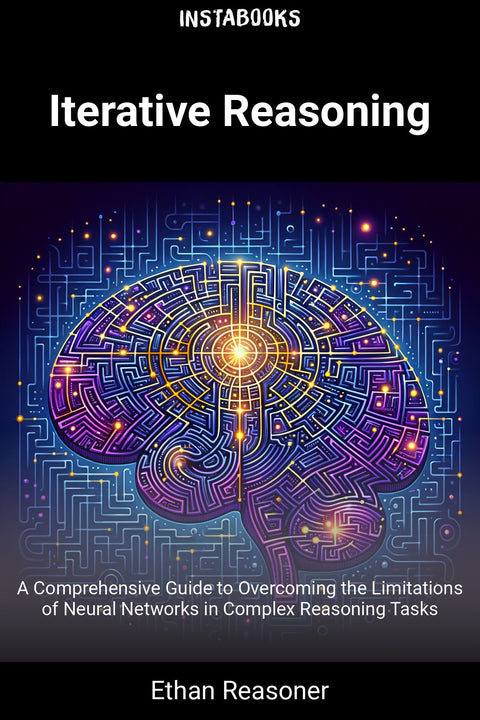
Iterative Reasoning
A Comprehensive Guide to Overcoming the Limitations of Neural Networks in Complex Reasoning Tasks
Included:
✓ 200+ Page AI-Generated Book
✓ ePub eBook File — read on Kindle & Apple Books
✓ PDF Print File (Easy Printing)
✓ Word DOCX File (Easy Editing)
✓ Hi-Res Print-Ready Book Cover (No Logo Watermark)
✓ Full Commercial Use Rights — keep 100% of royalties
✓ Publish under your own Author Name
✓ Sell on Amazon KDP, IngramSpark, Lulu, Blurb & Gumroad to millions of readers worldwide
Introduction to Iterative Reasoning
Iterative reasoning is a complex process that has long been the exclusive domain of human cognition. However, with the advent of deep learning, researchers have been striving to enable neural networks to perform such tasks. The paper 'Learning Iterative Reasoning through Energy Minimization' by Yilun Du and colleagues has made significant strides in this direction, and this book aims to provide a comprehensive overview of the subject.
Limitations of Deep Learning
Current neural networks have a fixed computational capacity based on their architecture, limiting their effectiveness in solving more challenging algorithmic problems. This book explores the limitations of deep learning and how they can be overcome using the energy minimization framework.
Energy Minimization Framework
The energy minimization framework is a novel approach that allows neural networks to engage in iterative reasoning by framing it as an energy minimization problem. This book delves into the details of this framework, including how it can be used to adaptively increase computational resources for solving harder problems.
Table of Contents
1. Introduction to Iterative Reasoning- What is Iterative Reasoning?
- Limitations of Deep Learning
- Energy Minimization Framework
2. Energy Minimization Framework
- Introduction to Energy Minimization
- Adaptive Computational Resources
- Nested Reasoning Challenges
3. Applications of Iterative Reasoning
- Artificial Intelligence
- Machine Learning
- Real-World Applications
4. Future Directions
- Current Research
- Potential Applications
- Challenges and Limitations
5. Conclusion
- Summary of Key Points
- Future Prospects
- Recommendations for Further Reading
6. Appendix
- Glossary of Terms
- List of References
- Index
7. Index
- Subject Index
- Author Index
- Keyword Index
8. References
- Primary Sources
- Secondary Sources
- Online Resources
9. Glossary
- Key Terms
- Definitions
- Acronyms
10. About the Author
- Biography
- Research Interests
- Publications
11. Acknowledgments
- Contributors
- Reviewers
- Sponsors
12. Preface
- Introduction
- Purpose
- Scope
Target Audience
This book is written for researchers and practitioners in the field of artificial intelligence and machine learning, as well as anyone interested in learning about the latest advancements in iterative reasoning and energy minimization.
Key Takeaways
- Understanding the limitations of deep learning in complex reasoning tasks
- Learning about the energy minimization framework and its applications
- Discovering the potential of iterative reasoning in AI and ML
